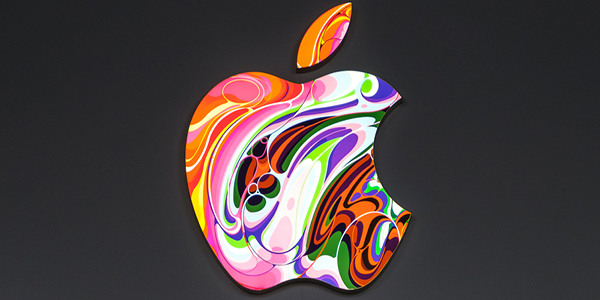 |
||||||||||||
|
||||||||||||
| Despite Dire Warnings, 2022 Was a Banner Year for Digital Advertising |
 |
| Late last year, publishers began announcing layoffs as the business world and consumers braced for a recession. Widespread job cuts cast a pall over the publishing world as we entered 2023, further compounding fears of a recession. Publishers were facing some difficult economic headwinds. July of 2022 saw a two-year low in revenue. Advertisers cut their spending month after month, and eMarketer shaved $5 billion off its 2023 forecast. Things looked dire. But according to the IAB/PwC revenue report for 2022, the digital advertising sector dodged a bullet. “In 2022, the digital advertising industry showed resilience in the face of a strained economy, with ad revenues year-over-year securing double-digit growth and totaling over $200 billion for the first time,” its authors write. Much of that growth occurred in Q1 2022 before the world began to obsess over the possibility of a recession. Growth declined in the following quarters, but as the IAB points out, that may have been due, in part, to other factors such as Apple’s App Tracking Transparency feature being live for the entire year and new privacy regulations that went into effect. Overall, the IAB/PwC is upbeat about the sector’s prospects for 2023, with some caveats, including evolving privacy regulations and consumer usage patterns. The Winners Programmatic advertising has received bad publicity lately, such as a series of Digiday articles describing its many woes and Bloomberg News announcing it would pull the plug on open exchanges. However, the bad rap didn’t put a damper on spending, as revenues increased by $10.4 billion in 2022, delivering an impressive $109 billion for the year. Mobile advertising was another winner. Advertisers delivered 14.1% YoY growth, and ad revenues reached an all-time high of $154.1 billion. According to the report, mobile now accounts for 73.5% of total internet ad revenues. Retail media was a hot topic in 2022, and many predicted its star would continue to rise in 2023. The IAB estimates retail media ad network revenues were around $37.5 billion in 2022, still less than the legacy channels but growing remarkably. A caveat to consider: the two biggest retail media networks are getting 45% of the market. You may recall that an early 2023 survey by the ANA showed that while marketers are investing in retail media, they have some strong concerns that are slowing its growth. Still, the IAB expects budgets to “migrate to retail media networks as they offer advertisers access to first-party data for personalization and measurement in closed-loop environments.” The Losers Unsurprisingly, social media tops the list in the loser category. It’s fair to say that social media is in disarray, as Elon Musk creates havoc on Twitter, and the U.S. government threatens to ban TikTok. Spending in the channel slowed in 2022, especially in the later quarters. It’s important to note that while growth in spending slowed a bit, it didn’t decline. The year started out strong, with an HY1 increase of $1.8 billion in revenue. By the year’s second half, revenues “plateaued” at $31.4 billion (a growth of $0.3 billion). |
| Publishers retreated as they considered the implications of declining ad revenues, an event that didn’t come to pass, at least not in 2022. Fewer staff people mean fewer resources to innovate, which may come back to bite them in the years ahead. Many publishers opted to stick to their knitting, focusing their efforts on activities that deliver a reliable ROI. On the positive side, publishers used the fear of smaller ad budgets to diversify their revenue, dabbling in paid newsletters and reader donations to compensate for the anticipated revenue gaps. If ad revenue continues to grow as the IAB expects, these other initiatives may be icing on the cake, and revenue streams might not have developed if it weren’t for the recession. |
| France Preps Antitrust Lawsuit Against Apple |
 |
| If the ad tech ecosystem had a nominating pool for how-to title Q1 of 2023, Antitrust Season would be a top contender. An antitrust lawsuit drops against a big tech company like a pair of designer shoes every few weeks. The French Competition Authority will likely pursue an antitrust lawsuit against Apple. The case stems from criticisms of the company's app tracking policies. In 2020, four French online advertising lobbies — IAB France, Mobile Marketing Association (MMA), SRI, and UDECAM — filed an antitrust complaint against Apple, alleging the tech company's updates did not meet the European Union's privacy laws. They allege that Apple did not hold itself accountable to the same targeting standards it forced on its competitors and continued targeting IOS with ads from app tracking data. This current antitrust case is a continuation of that argument. If the formal investigation goes through, this would be the first time a global federal government took action against Apple regarding privacy rule changes. French regulators are attempting to issue a formal "Statement of Objections" to the parties involved in the case. The statement signals to those who complained against Apple that they found evidence of anticompetitive behavior in the initial review of the complaint. |
| While Apple asserts that its app tracking technology promotes consumer privacy, others in the ad tech ecosystem believe their motives were more sinister. When Apple introduced its privacy updates, its rivals started to lose tons of revenue. Most notably, Meta lost an estimated $10 billion in revenue. In addition, Apple made business moves that appeared to some industry experts as a ploy to take over Meta's ad business. For instance, last September, Apple posted two job listings seemingly aimed at poaching advertisers from Facebook and Instagram. But Meta didn't sit back and take it. They took out their gloves and headed into the gauntlet by taking out a full-page ad against Apple after they introduced ATT. They alleged that the new guidelines would affect small businesses’ ability to personalize advertising. Analyst Eric Seufert saw this as Apple playing the long game and staking their claim to the ad tech throne. "I think the revenue piece [of the ad market] is less important to Apple than just breaking up Facebook's total ownership of distribution on mobile," Seufert said. "Ads are a revenue opportunity, but, more importantly, they're a discovery mechanic. My sense with all this is that they care about the revenue, but I don't think that was the primary driver. I think it was about power." If the alleged accusations against Apple are true, France's potential antitrust lawsuit has leverage against the tech company. |
| California Lawmakers Readying Generative AI Regulations |
 |
| California lawmakers are ramping up efforts to regulate the use of AI with the introduction of the AB 331 bill. Introduced by California State Assemblymember Rebecca Bauer-Kahan, the law aims to ensure specific AI systems receive additional oversight to combat algorithmic discrimination, including testing algorithms ahead of time and pushing for transparency in using tools like ChatGPT. In addition, the bill also targets companies using AI to target audiences for advertising across the financial, employment, education, and medical sectors, especially since certain decisions made based on these algorithms can negatively impact people's lives. "Marketers should build the algorithms from the get-go with trust in mind, instead of ignoring it and waiting for the worst to come back in two years as it did with privacy," said Dominique Shelton Leipzig, a partner at the law firm Mayer Brown. Lawmakers and regulators are worried that as the industry shifts away from third-party cookies and moves toward algorithms for targeting audiences, elements such as accuracy and bias checks are overlooked because of the rapid pace of generative AI. They want companies like OpenAI to be more transparent about using data to train AI models. |
| California is not the only state concerned with AI regulations. Washington and Minnesota are also looking to pass laws to regulate AI. In addition, federal governments in the US and the EU have joined forces to create a committee to discuss the rapid development of AI technology. The government's plan to equip themselves to handle the incoming AI storm through partnership and research. They will research five categories: extreme weather and climate forecasting, emergency response management, health and medicine improvements, electric grid optimization, and agriculture optimization. "There are potentially real benefits from large language models and applying those to various social problems, specifically writing more secure code to make sense of a lot of the data and insights out there," a senior administration official said. "We want our economy to get those benefits, but there's also real worry about it. The same vulnerability analysis one might do for cybersecurity; one might also do to find vulnerabilities to hack." Generative AI has shown its benefits for advertising and creator economies. It can brainstorm, copyright, target ads, and more. Many big tech companies have integrated AI into their platforms, such as Microsoft, Meta, and Snapchat. The benefits are plentiful, but lawmakers are right to worry about some of the kinks. Generative AI has, no pun intended, generated concern for spreading misinformation and violating privacy compliance. |
| Around the Water Cooler |
 |
| Five Ways Marketing is Evolving From Generative AI From a battle between ChatGPT-empowered Bing and Google’s Bard to consumers worried about AI writing content, AI is implementing drastic changes in the advertising industry. What better way to show how the emerging tech is reshaping the sector than data sets and flow charts? (Insider Intelligence) Scope3 Finds Environmental Hack For Buying Ads Organizations across the advertising industry are looking to reduce their carbon footprint, and Scope3's research suggests that Teads is ahead of the pack. Teads is a global end-to-end omnichannel platform, enabling buyers a single access point to buy inventory from many of the world’s best publishers and content providers. This newfound information and integration with Scope3 will help to reduce the carbon emissions of advertising campaigns. (Mashable) Insider Invites ChatGPT Inside Its Newsroom Insider’s global editor-in-chief Nicholas Carlson announced that the media company will start experimenting with AI in the newsroom. For example, Carlson suggested the emerging tech be used in the development of story outlines, to find typos, to create SEO optimized headlines, or to research complex topics. But, he also cautioned writers not to use information from ChatGPT, or other AI chatbots, directly in articles as AI can generate inaccurate or faulty text. For now, journalists don’t have to worry about AI taking over their jobs, but could that day come soon? (Gizmodo) Spotify Broadcast-to-Podcast Tech to Help Audio Pubs Garner Podcast Revenue With Spotify’s B2P, publishers like Fox News Audio can convert broadcasts to podcasts on the fly, reducing production time and costs. With radio listenership increasing online, the new tech will help pubs reach new audiences like GenZ, and to grab some of that $2.2 billion ad spend forecasted for podcasts this year. (FastCompany) |
 |
||||
|
||||
 |
||||
 |
||||
|





